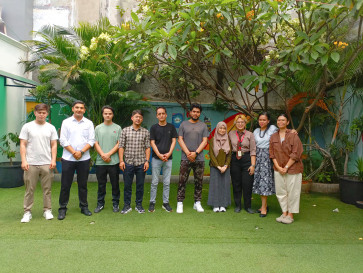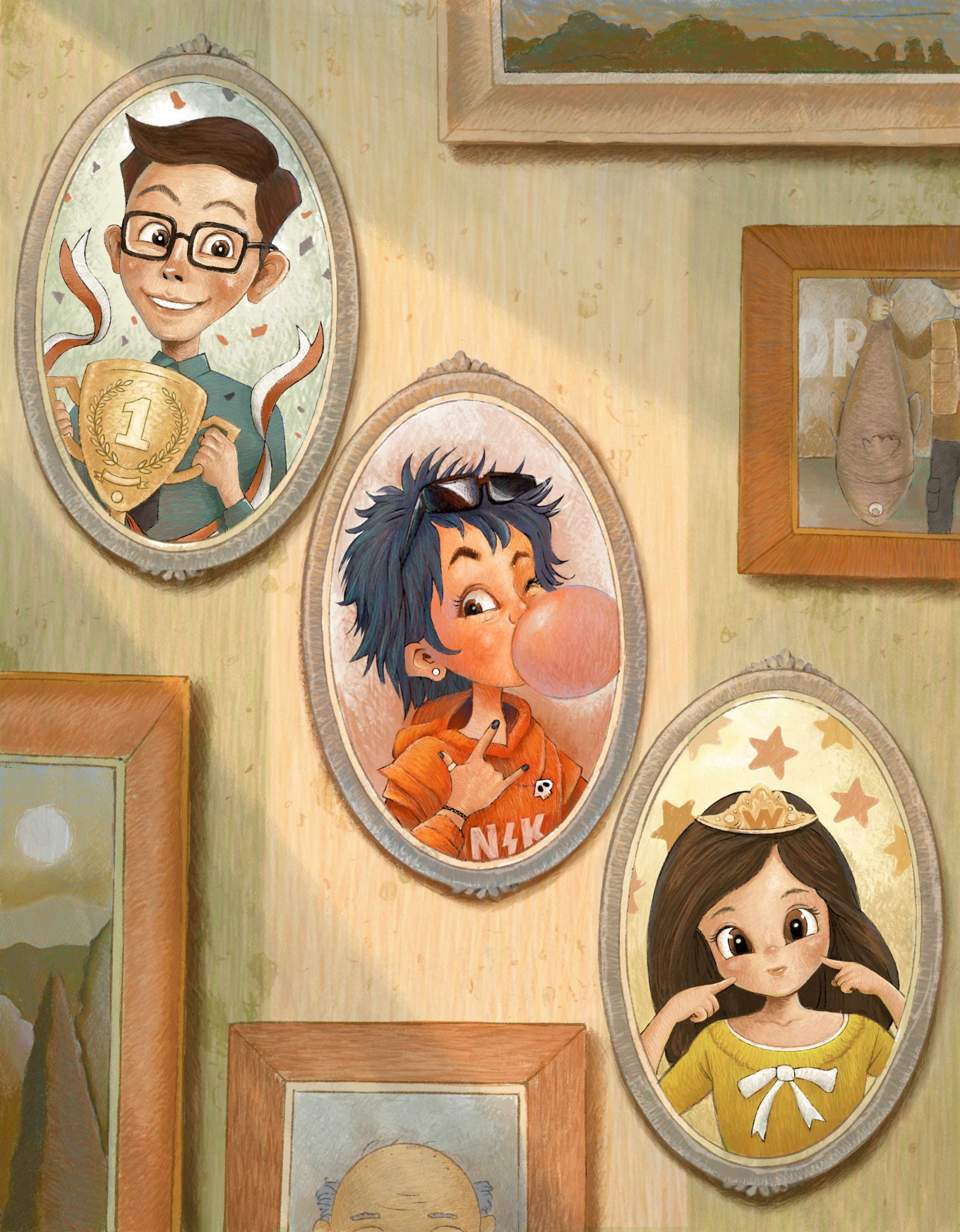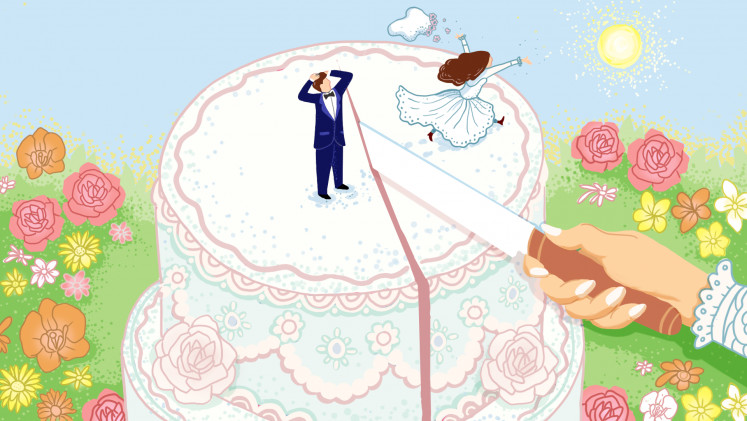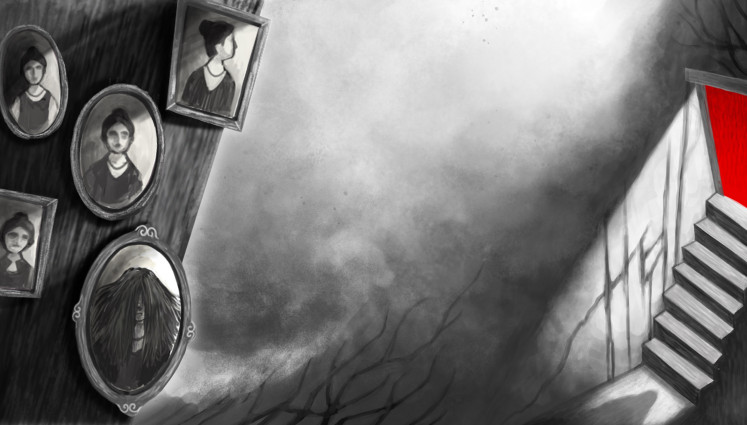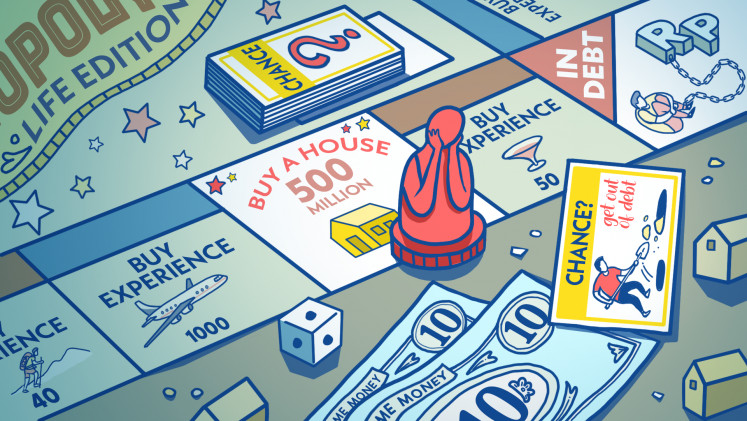When I was in sixth grade, my parents decided to send my older sister and younger brother to one of the best Catholic private schools, located on the outskirts of Jakarta. My sister was starting junior high school, and my brother was in the second grade.
I, however, was to stay at my current school. My mom said I was graduating anyway, so it wouldn’t make sense for me to change schools. As a self-proclaimed straight-B student, I was more than happy to stay put.
But just a few months after my siblings started at their new school, I noticed their English had improved rapidly. My sister discovered she was mathematically gifted, and my brother developed a keen interest in science.
That was the first time I felt singled out and visibly different from my siblings. I felt lost.
A year later, my mom enrolled the three of us in an international school, but the damage had been done. I had stopped comparing myself academically to my siblings. They were praised for their brains; I was praised for my looks. That stayed with me for life.
It’s not a ‘phase’

Thank you!
For signing up to our newsletter.
Please check your email for your newsletter subscription.
One night, I came across an online article about middle child syndrome. As I tried to self-diagnose, I doom-scrolled through memes and videos making fun of being overlooked and alienated by family.
The thousands of comments warmed my heart, making me feel like I wasn’t just insecure. But a question lingered: Is this syndrome even real?
“Middle child syndrome is not a mental health condition or a psychological disorder,” clarifies Sindya Bisono, a psychologist at the I Love My Psychologist (ILMP) clinic.
“But there is a syndrome, even symptoms. It’s a term used to better describe the emotional experience of the average middle child.”
Though it’s not an official condition, the characteristics of a middle child often include being independent and social.
Middle children are typically also attention seekers, being sandwiched between their older and younger siblings, adds Grace Sameve, a child counselor at the International Wellbeing Center in South Jakarta.
They tend to compete with other family members for attention, and then look for it elsewhere when they don't get it at home.
As they are usually caught in the middle of everything, they can also become natural peacemakers.
According to a Healthline article, the personalities of middle children are often overshadowed by their siblings’, resulting in a quiet and even-tempered nature.
The 2016 study cited in the article revealed that middle children were also more likely to develop maladaptive perfectionism, characterized by a constant desire for things to go as planned.
Check, check and check. Like astrology, it feels like our personalities are written in the stars.
Nurtured behavior
It is generally understood that a person’s behavior is influenced by many factors, including our nature, or inherent traits, and how we were nurtured, referring to the environment in which we are raised.
“This is where the cycle begins,” Grace says.
“The environment, or the nurturer, labels [children] based on their birth order. It becomes a cycle, because the environment is often a more influential factor” than a child’s nature.
This means, for example, that middle children tend to become attention seekers because they feel they are not getting enough attention from their family.
Eight-year-old Runa says this is exactly how she feels.
“The worst thing about being a middle child is that my younger sister gets more loved by my mom. Every night, my mom says, ‘Oh, I love you.’ Hug, hug. And then I'm like, ‘I want a hug, too,’ and she's like, ‘Oh no, you're too heavy!” she recounts.
But her mother Santi Zulbachri calls Runa the glue that holds the family together, describing her as a bubbly and expressive girl who loves the family spotlight.
Experiences can differ however, especially when parents are conscious of the possibility that a middle child can feel left out, and particularly if they know what this feels like.
Ayuna Hakim says she’s worried her 7-year-old son Aiden might be overshadowed by his talkative and dominant 9-year-old sister, based on her own experience of growing up with a younger brother.
Ask Aiden now, and he says that being a middle child is one of the best things, because he gets so much attention.
“I thought because they go to the same school, I didn’t want everyone to call him ‘Lana's little brother’,” his mother says.
“But then, he was selected as the main character in school shows and as a presenter for the school’s open house. He did that on his own, in his own way.”
Finding our place
Without conscious parenting, though, a middle child can feel overshadowed by the firstborn and that they receive less attention than the youngest, the baby of the family. Without a clear role, we struggle to find our sense of belonging.
This could be why middle children also tend to seek relationships outside their families, building large social circles and cultivating close-knit friendships, according to an article in online magazine Parents.
I identify with that. Whenever I’m in trouble, my parents are generally not the first people I run to.
Oliver Sitompul, 41, who is sandwiched between an older sister and a brother 12 years younger, shares this trait.
“I don’t want to bother my parents or owe them anything, so I am more comfortable outside [my family home],” he shares, adding that he looks for people he can look up to like an older brother.
“There are days when I don’t come home and just sleep at the office. I just come home when they call me.”
For Ratri Anindyajati, the reason she decided to leave home and pursue higher education as soon as she turned 18 was because she didn't want to mediate family conflicts between her divorced parents anymore.
“I couldn’t stand being a mediator anymore and I told them, ‘I’m not going to be the person in between anymore. If you have something between you all, figure it out on your own,’” she recalls.
Now 37, Ratri does not think she has middle child syndrome. She admits feeling a little jealous of the connection her mother and sister share, as they are both dancers, but notes that her mother did not specifically give her sister more attention.
“I didn't know what I wanted to be, because I figured out quickly that I was not an artist,” she says.
“So there was a time when I was struggling with that, but I was just trying to figure out my place.”
Ratri’s relationship with her mother and sister mirrors mine. Both alpha females, my mother and sister are like twins, although they act like oil and water.
Similarly to Ratri’s former role as mediator, during my time away at university, my mother would confide in me about her problems with my siblings. But I welcomed this role as her “therapist”. I felt special that my advice was gravely needed in times of trouble.
To each their own
Still worried I’m being too dramatic about this syndrome, I turned to my dad, a fellow middle child.
As the favorite grandchild in my family, I have a clear perspective on the dynamic among his siblings: His older brother is their mother’s favorite, while his younger sister holds that title with their father.
Where does that leave my dad? He insists that middle child syndrome isn’t real; I say he is the king of wishful thinking. My dad may not admit it, but from what I’ve seen of his family dynamics, it’s real.
But perhaps these feelings tend to go away as we mature and find our identity outside our immediate family. Or maybe some really just don’t recognize these feelings for what they are.
“When we are adults, we don't realize that there are unfinished things from childhood or personal issues that shape us until we grow up. [These] carry over,” Sindya explains.
This was the case with Mary Suhardi, 54, who recalls being tasked with caring for her younger brother. When her older brother became a teenager, she was pretty much left by herself, so she became independent early on.
That caretaker role has continued, and she now looks after her parents.
“It's not an expectation, it's just that no one else wants to,” Mary says.
Knowing the syndrome is real makes me feel better: It validates my feelings of being stuck in the middle when I was growing up. And while I recognize it, I don’t use it as an excuse to justify my actions or behavior.
“We also need to be careful not to overgeneralize things, because we will always find outliers. There might be a middle child who is not like that,” Grace says.
One such middle child is Ardito Kodijat, 64, who has two sisters three years older and four years younger than him, and says he never felt overlooked as a child.
“Of course, my older and younger sisters are closer, even until now, just because of their gender. But I don't really feel left out or alienated. I just accept it and don’t see it as a ‘curse’. I think our parents made sure of that,” he says.
In the end, each individual is shaped by gender roles, societal norms and family dynamics. Birth order is just one piece of a big puzzle.
Sheena Suparman is a writer for The Jakarta Post's Creative Desk. She is based in Jakarta but wishes she could be anywhere else. Usually powered by coffee and chips, she has been a proud member of the Swiftie cult since 2008.






